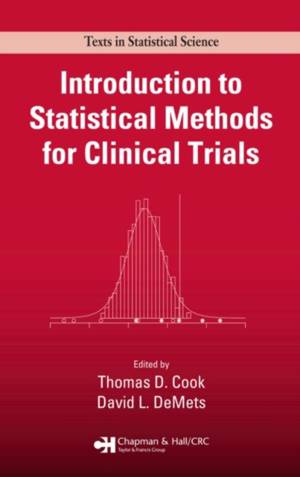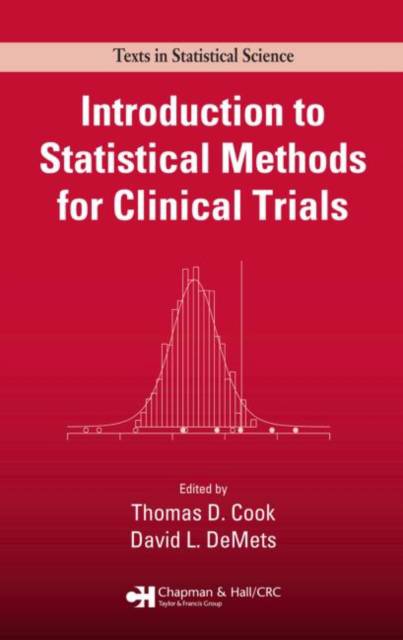
- Retrait gratuit dans votre magasin Club
- 7.000.000 titres dans notre catalogue
- Payer en toute sécurité
- Toujours un magasin près de chez vous
- Retrait gratuit dans votre magasin Club
- 7.000.0000 titres dans notre catalogue
- Payer en toute sécurité
- Toujours un magasin près de chez vous
Introduction to Statistical Methods for Clinical Trials
Description
Clinical trials have become essential research tools for evaluating the benefits and risks of new interventions for the treatment and prevention of diseases, from cardiovascular disease to cancer to AIDS. Based on the authors' collective experiences in this field, Introduction to Statistical Methods for Clinical Trials presents various statistical topics relevant to the design, monitoring, and analysis of a clinical trial.
After reviewing the history, ethics, protocol, and regulatory issues of clinical trials, the book provides guidelines for formulating primary and secondary questions and translating clinical questions into statistical ones. It examines designs used in clinical trials, presents methods for determining sample size, and introduces constrained randomization procedures. The authors also discuss how various types of data must be collected to answer key questions in a trial. In addition, they explore common analysis methods, describe statistical methods that determine what an emerging trend represents, and present issues that arise in the analysis of data. The book concludes with suggestions for reporting trial results that are consistent with universal guidelines recommended by medical journals.
Developed from a course taught at the University of Wisconsin for the past 25 years, this textbook provides a solid understanding of the statistical approaches used in the design, conduct, and analysis of clinical trials.
Spécifications
Parties prenantes
- Editeur:
Contenu
- Nombre de pages :
- 464
- Langue:
- Anglais
- Collection :
Caractéristiques
- EAN:
- 9781584880271
- Date de parution :
- 01-11-07
- Format:
- Livre relié
- Format numérique:
- Ongenaaid / garenloos gebonden
- Dimensions :
- 163 mm x 236 mm
- Poids :
- 771 g

Les avis
Nous publions uniquement les avis qui respectent les conditions requises. Consultez nos conditions pour les avis.





